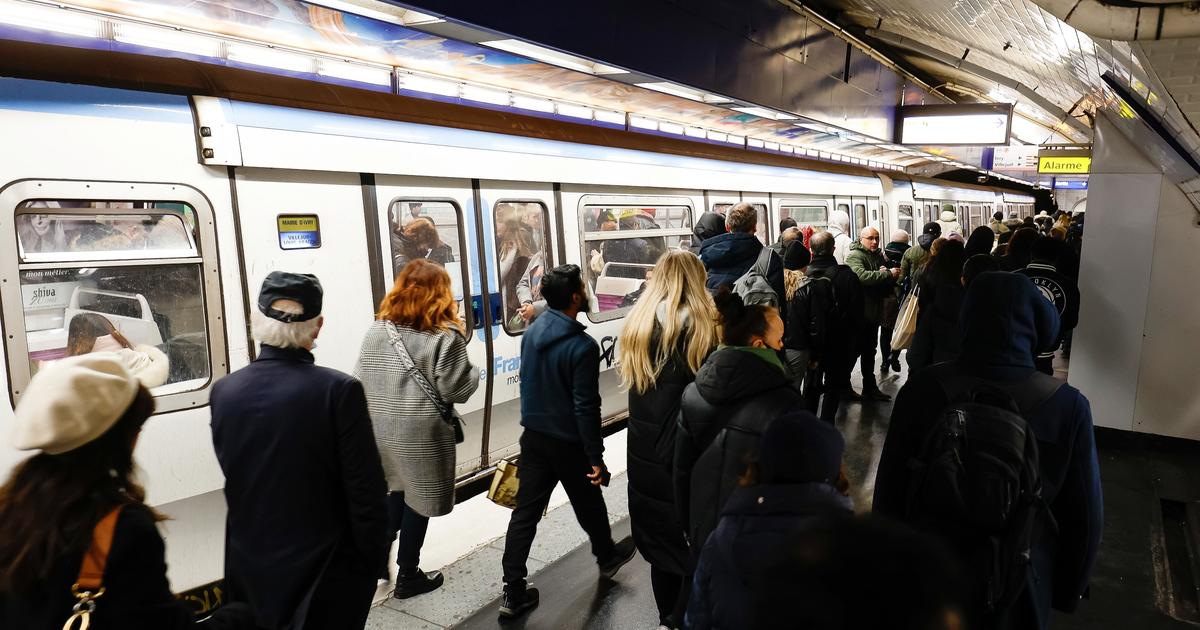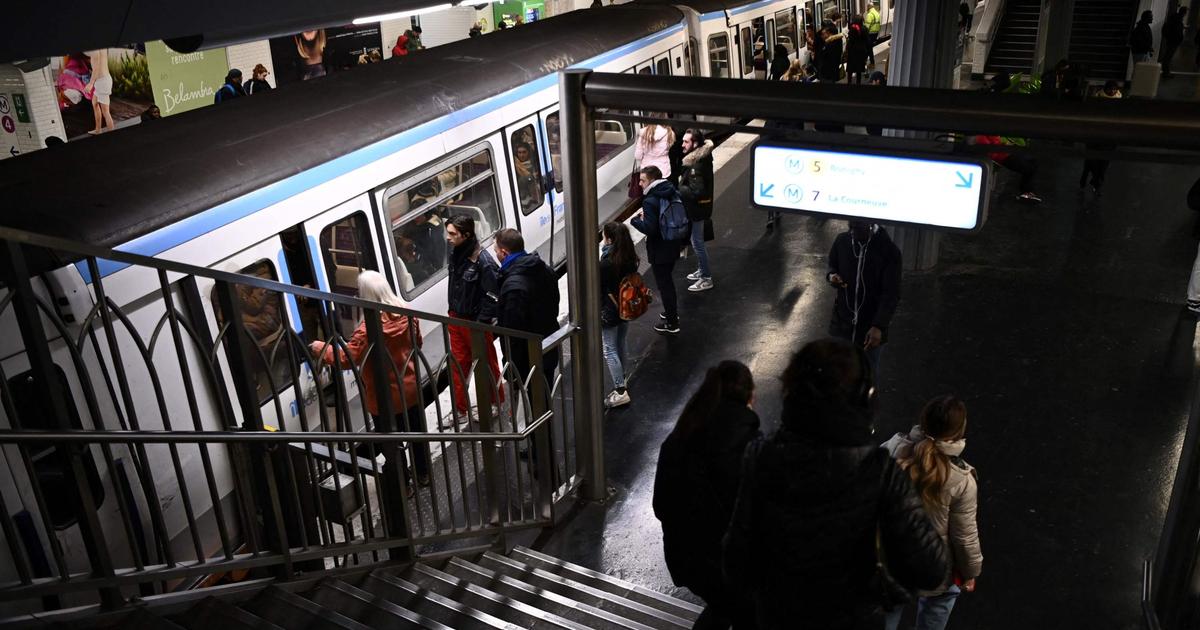To see the ballet of the soldiers in trellis, to cart mountains of boxes, one could believe oneself in a distant warehouse, in period of conflict. However, we are in Paris (19th century), in the cafeteria of the Ile-de-France Regional Health Agency (ARS). The enemy is the Covid-19. This Tuesday, April 7, eighth week of crisis, we are approaching 24,000 patients and there will be 240 more dead than the day before, in hospitals in Ile-de-France alone. The dozens of cartons contain nearly two million surgical masks and as many FFP2, given in a few hours to the sanitary pilots and the caregivers of hospitals and nursing homes on the brink of rupture. Exclusively donations.
READ ALSO> The mystery of the zero patient in France: the trail of the Oise soldiers dismissed
The masks, it is Public Health France which takes care of distributing them, that was never in the missions of the ARS. But in exceptional situations, new devices. "At the beginning, we received donations from private stocks, now it is more people who have contacts in China and offer to order them for us," explains Damian Mathey, head of this unique "masks" cell.
This enarch, a social affairs inspector, wanted to "feel useful". He volunteered with the ARS three weeks ago. In a few hours, he found himself propelled to the Millénaire, Porte d'Aubervilliers (Paris XIX), to coordinate a team of around thirty people, ARS agents or officials of other administrations, Paris firefighters and soldiers . Pharmacist inspectors check that the masks are compliant and not soiled. If in doubt, the National Agency for Medicines and Health Products (ANSM) must give the green light.
60 ARS agents were contaminated, one died
The masks, almost everyone, wears them at the ARS headquarters. If the reception agents hand them out at the end of a small pole to any newcomer, it is not out of coquetry. Because here too the Covid raged. With sixty patients in March, the headquarters where 600 of the 1,100 ARS staff work had all the symptoms of the cluster. And a few months before retirement, Pierre Housieaux, an agent of the general secretariat, died on March 30. He had volunteered at the PFR, the regional focal point, this telephone cell created since February to answer calls from individuals and professionals. In one month, the offices were spaced, the SHA (hydroalcoholic solution) is everywhere, in the refectory, no one eats face to face. And in the hallways covered with carpet, to avoid touching the doors, sometimes they are blocked with reams of paper or old public health codes
This April 7, we are flirting with the 2,600 patients in intensive care in Ile-de-France, while the capacity was 1,200 beds. Who would have imagined it during the first crisis meeting on January 22? The walls were pushed, the reinforcements arrived from the provinces. A digital platform created on March 24 allows to know the pharmaceutical stock of hospitals in real time.
The bed management unit manages the distribution of patients
It is 11:30 am, the "situation table" has just fallen: there are 178 available sheave beds, 3 in Seine-Saint-Denis, 2 in Val-d'Oise, 7 in Essonne, 45 elsewhere ... This table Excel, updated by the bed management unit three times a day, is a crucial tool. It allows emergency services to save precious time to find a place.
Paris Newsletter
Every morning, the news of your department seen by Le ParisienI'm registering
Your email address is collected by Le Parisien to allow you to receive our news and commercial offers. Find out more
But it is also a fundamental strategy tool. “When we saw last week that we only had around thirty beds available, we knew that we had to make transfers to other regions ( 211 patients were transferred to provincial hospitals, Editor's note ) ", explains Didier Jaffre, director of the care offer, who has already called, in the middle of the night," number 2 of a large group of private hospitals to find beds ". "No one will be left behind," he repeats. How to be convinced? "The average age of patients ( around 60, note ) has not decreased," he replies. If the patients were sorted, the average age would drop. "
To update this table three times a day, the twenty or so members of the bed management unit, agents and volunteers, make 3,500 daily telephone calls. The most exposed hospitals are even recalled a fourth time at night. Number of beds available, Covid case, saturated morgue ... The same questions, about fifteen, are asked by the same agents, at the same hospitals or clinics.
"This human connection is essential"
"Did you say this morning that you were full?" Asked a volunteer over the phone. At the end of the line, a Hauts-de-Seine establishment announces four Covid deaths. "We lacked this visibility, it saves time, stress", thanks a director of clinic, whose message rubs shoulders with thirty other post-it on a panel called "Wall of thanks".
"This human link is essential, we come back to basics, on the phone, we hear other things, we can say We can't take it any more, " adds Romain Hellmann, at the origin of the bed management service. He is an Urgences-Samu-Smur medical referent at the ARS and always an emergency doctor at the Bichat hospital in Paris (18th century), where the first patients from Covid were admitted. "We learned from the Chinese, the Italians and the Grand-Est," he insists.
The painful situation in the Ehpad
We still do not know the exact number of deaths but we do know that half of the 700 accommodation establishments for dependent elderly people (Ehpad), at least, are bereaved. With 60,000 residents in Ile-de-France and 20 to 25% of sick staff: the subject is sensitive, the attacks numerous. Twice a week, Isabelle Bilger, the Director of Autonomy, takes stock on the phone with the representatives of the Ehpad. As of March 10, the ARS took the initiative to ban visits. A 19-page note from April 4 - fifty have been produced since the start of the crisis - scans all aspects of the care of the elderly in Ephad, down to the smallest detail, up to the psychological support of the teams.
VIDEO. "Think of us": the message touching residents of a nursing home to their families
But how can we be effective in establishments where residents are very vulnerable and almost a quarter of the staff are on standby? “The Covid is not a storm in a calm sky, it was already very rough before for the Ehpad. Tonight, we will have a list of all their human resources needs with the degree of urgency, ”insists Aurélien Rousseau, the omnipresent director general of ARS. A questionnaire has been launched since March 24 to identify the reports and the needs of each. "They are encouraged to have a full-time coordinating doctor, and the ARS will cover all the costs that this represents," repeats the director general, in constant contact with the Ministry of Health.
A regional platform has been set up to respond 24 hours a day, 18 school doctors and 57 school nurses from Seine-et-Marne and Yvelines are ready and 400 nurses and nursing assistants from the public health reserve in France (i.e. a tenth of the reserve) arrive as reinforcements. Who will be tested? When? Journalists want to know. The question will be arbitrated at 2 p.m. by Craps, a regional support and health management unit, in a glass room on the 4th floor: the three establishments in each Ile-de-France department with the most Covid cases will be tested in priority, by mobile teams.
Centers for the homeless sick mounted by the ARS
On the same day, two new centers for sick precarious workers from Covid opened in Châtenay-Malabry (Hauts-de-Seine) and in the Bois de Vincennes. There are already 8 (two for families, six for singles), mounted in an emergency and with associations. A partnership greeted by Luc Ginot, doctor and director of public health at ARS.
In these centers, 164 people were admitted. 228 places remain. Five sick people, according to the ARS, refused to join them. Dr. Luc Ginot cites the example of this elderly woman living in the Covid shantytown, who refused to leave her family. So, his follow-up continues on his place of life. "It is far from what we recommend but we have never done public health under duress", adds the doctor who knows the many challenges. He cites the homes of migrant workers, where several deaths have been reported. The situation is also worrying behind bars where the census reports 25 contaminated prisoners. Partnerships are sought to expand the mobile teams, capable of practicing tests, and who have carried out 42 outings in the past week.
Another hot topic, even if it is less visible, children and their families in substandard housing. "Everyone must be treated in the same way, without loss of chance," insists Luc Ginot who wants to develop actions in favor of fragile, cramped families. “We will try to provide parents with educational sites, show them that we are there, by their side and remind them that health services are accessible, we need to help the most vulnerable to pass the course. "
VIDEO. A family confined in 11 m²: "We are obliged to have a quasi-military organization"
"We will contribute to the reflection," answers Cécile Sommariba, deputy director of health surveillance and security, at the ARS since its creation. Crisis cells, she piloted after the attacks of 2015, the floods, the fire of Notre Dame. But never had such an impact on the population and the healthcare system. Here, everyone prefers to insist on the urgency of containment. "We will not be able to create 300 additional beds," sums up Romain Hellmann.
"It's like a sprint that would last a marathon"
This Thursday, April 9, the toll increased further with 200 additional deaths (3,077 in all) but for the first time since the start of the epidemic, the number of intensive care beds fell from 2,681 to 2,667. fewer beds is not much, but the drop is unprecedented. In addition, 48 new transfers to the province are scheduled and perhaps even this weekend.
"It's like a sprint that would last a marathon," illustrates an ARS member. "But that's nothing compared to what caregivers are going through," reframes Aurélien Rousseau, who "will not [let] anyone say that we didn't fight with all our might. Everything may not be perfect, but for now, the dike is holding up. "
-
What are ARS?
We can see it from the device. The Ile de France Regional Health Agency - there are 18 in France - is a public establishment, under the supervision of the Ministry of Health. Since 2010, it has replaced the Regional Hospitalization Agencies (ARH). They are responsible for piloting and rationalizing the health system on a regional scale, that is here for 12 million Ile-de-France residents. The ARS Ile de France employs 1,100 agents spread across the departments and a large half at the Paris headquarters.
At the head, one finds senior officials, economists and doctors. Director General (DG) of ARS Ile-de-France since 2018, Aurélien Rousseau, 43, a teacher by training, previously worked alongside Bertrand Delanoë then in Matignon, in the offices of Manuel Valls and Bernard Cazeneuve, including was assistant director of cabinet and social advisor. A post overexposed in full health crisis, necessarily. On Wednesday, the Council of Ministers dismissed the DG of the ARS du Grand-Est, Christophe Lannelongue, who had indicated that the abolition of beds planned over five years at the CHRU in Nancy would be maintained. Affirmation denied three days later by the Minister of Health Olivier Véran, indicating the suspension of "all plans to reorganize hospitals".
Our articles on the coronavirus:
- A global crisis: our latest articles published
- In figures: our dashboard to monitor the epidemic
- In questions: the editorial staff's answers to your questions
- The key thing to know: every day at midday, our newsletter to take stock
- Podcast: what are coronaviruses? Diving under the microscope in virus biology
- Call for contributions: tell us about your "world after"









